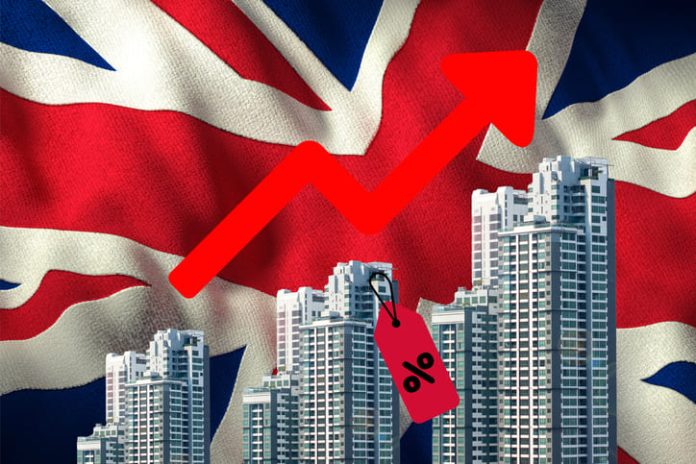US President Donald Trump has introduced a 10% blanket tariff on all US imports and a savage 145% tariff on Chinese goods, one of the most aggressive trade moves we’ve seen from the US in decades. While the President is solely concerned with American industry, a ripple effect has already started that has even caused tremors in the UK mortgage market.
It might be counterintuitive, but British banks have responded to this global uncertainty by slashing rates. With a cost-of-living crisis and spiraling house prices, this is a chance to breathe for many UK borrowers, but it could be short-lived.
That means it’s an opportunity to get a valuation on your home and lock in a long-term fixed-rate mortgage before the pendulum swings back and interest rates potentially rise.
Why Have UK Mortgage Rates Fallen?
Swap rates are the main reason mortgage rates have fallen in the UK. Essentially, that’s the rate the bank borrows at over a fixed term, similar to your fixed-rate mortgage. Trump’s announcement spurred a fall from 4.04% to 3.87% in the five-year UK swap rates. Two-year swaps fell from their peak of 4.68% in March to 4.40% following the news from the US.
In the UK, HSBC, Barclays, Halifax, and Coventry Building Society all announced dramatic adjustments to their fixed-rate mortgages as a result. Barclays slashed more than 0.25% off its 5-year fixed-rate mortgage with an offer of 3.99%. HSBC also revealed a 10-year fixed-rate offer at 4.04%, down from 4.45%, and other lenders are currently responding to the competitive landscape.
Predicting the future of the housing and mortgage market is fraught with danger, but this could be a window of opportunity. This might be as good as it gets for UK borrowers for quite some time, as the fallout from the global tariffs and subsequent trade wars takes hold. So, is this the chance to secure a new fixed-rate mortgage for the long term?
Trump’s Tariffs and What They Mean
President Trump described these tariffs as a National Renewal Strategy, which aims to reduce dependence on Chinese goods and revive the US manufacturing industry. Those are noble goals, but the global economy is a complex beast, and there have been a number of alarming signs in the wake of the announcement.
First, the S&P 500 fell 2.4% in just two days, global oil prices dropped by 3.7% in response to a potential recession, and the Chinese yuan fell by 1.6% against the dollar. The UK will feel the effects of the trade deal and tariffs, as 9.5% of UK exports head to the US, but the global financial instability poses the biggest threat. The Bank of England is already working on contingency plans in case of a global downturn, which includes re-evaluating the interest rate trajectory.
Could Inflation Be on the Way?
The National Institute of Economic and Social Research (NIESR) has claimed that persistent US tariffs could have catastrophic effects. It predicts a 50% reduction in UK GDP growth between now and 2026, a 3-4% rise in inflation over the next two years, and a collapse in business investment. If those predictions come to pass, the Bank of England will be forced to raise interest rates.
Other troubling signs of inflation are on the horizon, and increased interest rates will impact British homeowners’ mortgage payments. 10-year gilt yields have fallen from 4.28% to 4.11% in just four trading sessions, while the 2-year gilt yield fell from 4.53% to 4.34%. The 2-year gilt yield is one of the major barometers of interest rate expectations.
Since the tariff announcement, the UK Pound has also dropped against the US Dollar, from 1.285 to 1.265. This will increase the cost of importing goods, and inflation will follow.
What Should You Do?
Unless President Trump reverses the tariffs in the near future, which seems unlikely, the writing is on the wall. So, the smart move now is to take advantage of this dip in the mortgage rate and secure a new long-term mortgage at a fixed rate. That’s the best move right now, and if you can renegotiate an existing fixed-rate deal with an Early Repayment Charge, then that may be the way to go.
Predicting the future of financial markets is difficult at the best of times, and President Trump’s tariffs are a step into the unknown. All signs point to an eventual climb in interest rates, though, so taking advantage of this temporary dip could save you a lot of money in the long term.



































